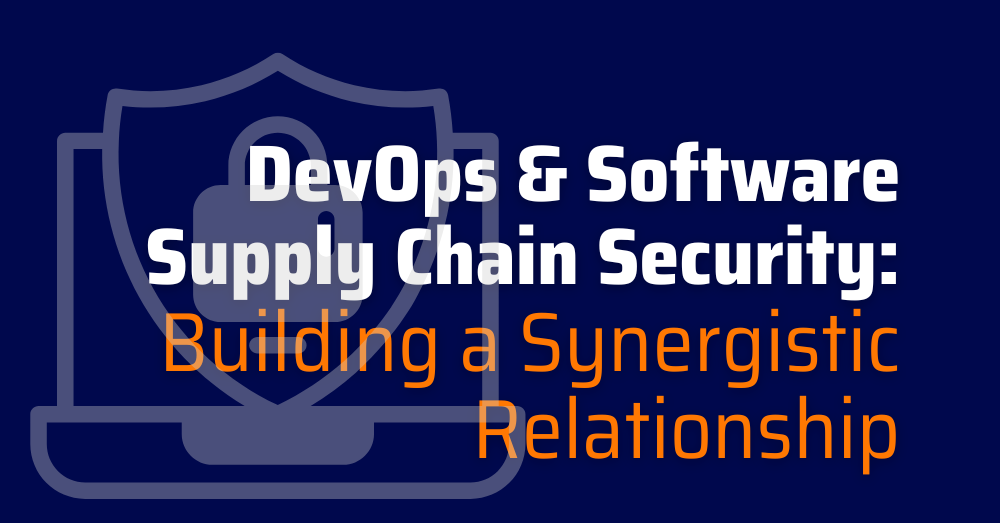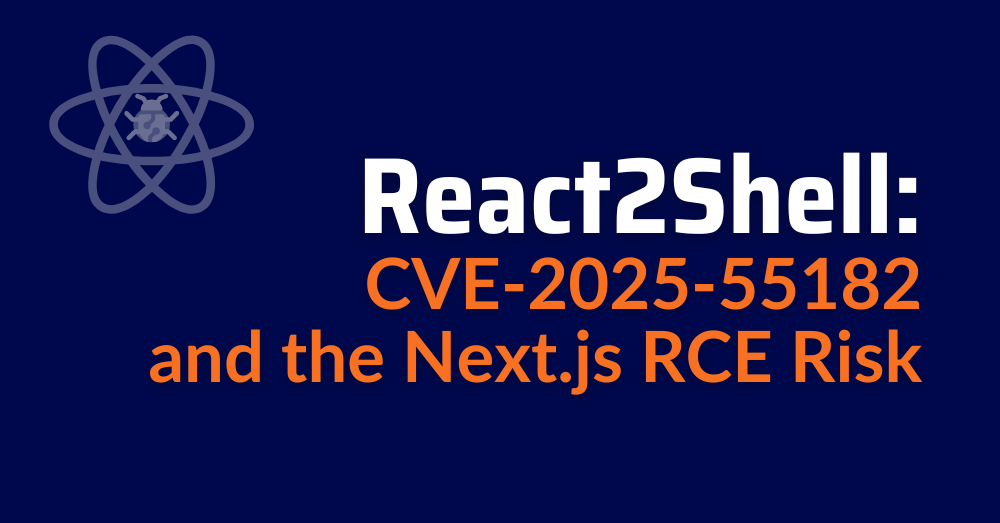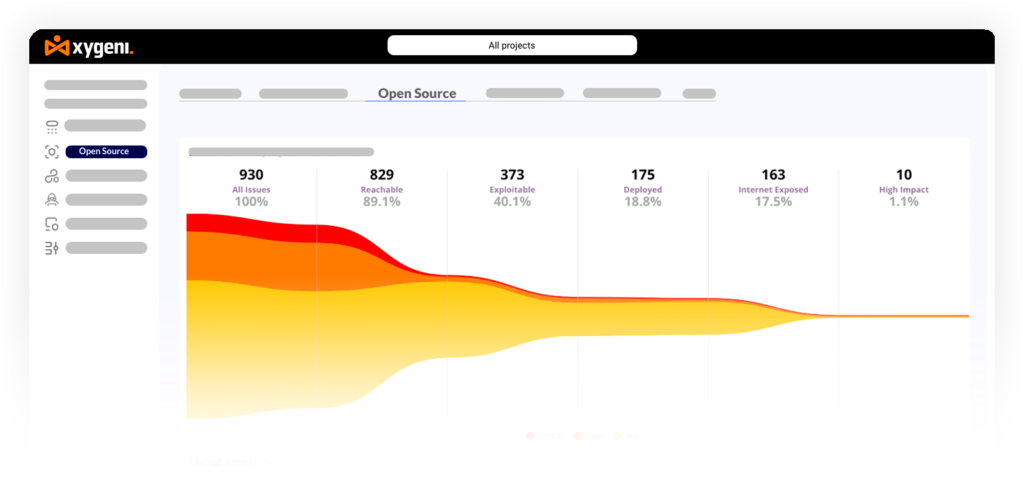Two concepts have emerged as critical components of the modern IT landscape: DevOps and Software Supply Chain Security. While they may seem like separate entities, a closer look reveals a symbiotic relationship that can significantly enhance the security posture of organizations. In the following lines, we delve into the intersection of DevOps and a Secure Software Supply Chain, exploring how they can work together to create a more secure and efficient software development environment.
Understanding DevOps and Software Supply Chain Security
Before we delve into the synergistic relationship between DevOps and Software Supply Chain Security, it’s crucial to understand what these concepts entail.
DevOps, a portmanteau of ‘Development’ and ‘Operations,’ is a set of practices that combines software development and IT operations. It aims to shorten the system development life cycle and provide continuous delivery with high software quality. DevOps is about breaking down silos and fostering a culture of collaboration between teams that traditionally functioned in isolation.
On the other hand, Software Supply Chain Security refers to the myriad of measures taken to secure the Software Supply Chain. The Software Supply Chain includes everything from the initial design to the final deployment and maintenance of software. It’s about ensuring the integrity and security of software at every stage of its life cycle, from its creation to its end-of-life.
The Importance of a Secure Software Supply Chain
Software Supply Chain attacks have become increasingly common and sophisticated in today’s interconnected world. The Software Supply Chain encompasses everything and everyone involved in the software development lifecycle (SDLC), from application development to the CI/CD pipeline and deployment. It includes the components (e.g., infrastructure, hardware, operating systems, cloud services, etc.), the people who wrote them, and the sources they come from, like registries, GitHub repositories, codebases, or other open-source projects.
These attacks exploit vulnerabilities in the Software Supply Chain. Risk to any component of the Software Supply Chain presents a potential threat to every software artefact relying on that supply chain component. It allows hackers to insert malware, a backdoor, or other malicious code to compromise any components and their associated supply chains.
In 2021, the U.S. President’s issuance of two White House executive orders on supply chains and cybersecurity underscored the vital role of Software Supply Chain Security in national and global cybersecurity. Today, securing the Software Supply Chain has become a top priority for organizations worldwide. Learn more!
The Role of DevOps in Enhancing Software Supply Chain Security
DevOps practices can help organizations to be more vigilant in protecting their software development infrastructure and processes. One of the fundamental principles of DevOps is the concept of “shifting security left”, which means integrating security measures into the earliest stages of the software development process. This approach helps to identify and address potential vulnerabilities before they become significant issues.
DevOps, emphasising collaboration, automation, and continuous delivery, can enhance Software Supply Chain Security. Here’s how:
1. Collaboration: DevOps encourages a culture of open communication and collaboration between development and operations teams. This collaborative approach can extend to security teams, leading to a more holistic view of security issues and effective security strategies. Furthermore, this approach ensures that security is not an afterthought but is integrated throughout the development lifecycle. It promotes a shared responsibility for security, ensuring all team members know and adhere to security best practices.
2. Automation: DevOps relies heavily on automation, which can be leveraged to automate security checks and processes. Automated testing tools can be used to identify malicious code in the codebase early in the development process. Automatic security scans can check for insecure dependencies in the Software Supply Chain. Automated deployment processes can ensure that only approved, secure code is deployed to secure production infrastructure. DevOps reduces the risk of human error and ensures that security checks are consistently applied by automating these processes.
3. Continuous Delivery: Continuous delivery, a core principle of DevOps, ensures that software is always in a releasable state. A patch can be quickly developed, tested, and deployed if a threat is discovered. This reduces the window of opportunity for attackers to exploit the vulnerability.
Applying DevOps Principles to Software Supply Chain Security
DevOps principles can be applied to enhance the security of the Software Supply Chain. Here’s how:
1. Infrastructure as Code (IaC): IaC is a crucial DevOps practice where infrastructure is managed and provisioned through code instead of manual processes. This allows for version control and consistency across environments, reducing the risk of configuration errors that could lead to security vulnerabilities. By applying IaC, teams can ensure that security configurations are consistently used across all environments.
2. Continuous Integration and Continuous Delivery (CI/CD): CI/CD pipelines automate the process of integrating changes and delivering the software to production. By incorporating security checks into these pipelines, teams can ensure that security is considered at every stage of the software development process. This “shift-left” approach to security helps to catch and fix security issues early, reducing the risk of threats and attacks making it to production.
3. Monitoring and Logging: DevOps encourages comprehensive monitoring and logging to identify issues and improve system performance. These practices can also be used to detect security threats and respond to them quickly. By continuously monitoring system activity and logging events, teams can identify suspicious activity and investigate potential security incidents.
4. Transparency and Traceability: DevOps practices, such as version control and infrastructure as code, provide transparency and traceability in the Software Supply Chain. This makes it easier to track changes, identify who made them, and roll back if necessary. It also supports audibility, making demonstrating compliance with corporate policies and security regulations easier.
Real-World Examples of DevOps Enhancing Software Supply Chain Security
Many organizations have successfully integrated DevOps into their Software Supply Chain to enhance security. Here are a few examples:
1. Etsy: the online marketplace for handmade goods, has been a pioneer in the DevOps space. They’ve integrated security into their DevOps practices by automating security testing and incorporating it into their CI/CD pipeline. This has allowed them to catch and fix security issues early, reducing the risk of vulnerabilities in production.
One of the critical elements of Etsy’s DevOps strategy is the continuous delivery pipeline, which allows anyone—developers, infosec, IT operations—to deploy code. This highly automated pipeline makes the process fast, reliable, repeatable, and safe.
The process begins with developers running tests on their own workstations. After this, they check the code into the trunk, which triggers automated tests on Etsy’s continuous integration servers.
Next, smoke, security and functional tests are run, executing test cases and end-to-end tests in a staging environment. From there, an engineer simply pushes a button to get the code to QA and pushes another button to send the code to production.
DevOps practices through automation and continuous delivery have allowed them to deploy code more than 50 times daily, efficiently and safely.
2. Netflix: the popular streaming service, uses a DevOps approach to manage its massive infrastructure. They’ve developed several tools to automate security checks and monitor system activity. One such tool, Security Monkey, scans its infrastructure for security anomalies and provides real-time alerts, enabling them to respond quickly to potential security incidents.
Netflix’s DevOps and Software Supply Chain Security approach is based on binary integration, where every team publishes binaries to a central artifact repository. Netflix’s Secure Software Supply Chain approach also involves dealing with dependency issues and understanding the impact of a threat or vulnerability on its ecosystem and production environments.
Netflix’s culture of freedom and responsibility allows each team to choose their own tooling, languages, and release cycles. However, it does not mean a lack of oversight or control. A central developer productivity team provides information and insight to every team at Netflix, helping them ensure maximum productivity and minimize their time to delivery.
Netflix’s integration of DevOps and Software Supply Chain Security involves a combination of tools, practices, and cultural elements. This approach allows Netflix to perform thousands of secure daily production changes with a tiny operations team.
Benefits and Potential Challenges of Building a Synergistic Relationship
Building a synergistic relationship between DevOps and Software Supply Chain Security offers several benefits:
1. Improved Security Posture: DevOps practices, such as continuous integration and continuous delivery (CI/CD), support identifying and remediating security threats early in development. Moreover, by incorporating security considerations into every stage of the Software Supply Chain, organizations ensure their software products are secure from inception to deployment.
2. Faster Response and Improved Efficiency: DevOps also improve the efficiency of software development processes. Automating routine tasks, such as security testing and deployment, reduce the time and effort required to deliver software products. It results in significant cost savings and enables organizations to respond more quickly to changing market demands.
3. Increased Collaboration: Breaking down silos between development, operations, and security teams foster a more collaborative and productive working environment. It leads to improved problem-solving, faster decision-making, and better software products.
However, there can also be challenges:
1. Cultural Change: Shifting to a DevOps culture requires a change in mindset. It requires teams to move away from traditional, siloed ways of working and to embrace a culture of collaboration and shared responsibility. This can be a difficult transition, requiring strong leadership and ongoing support in processes and tools to succeed.
2. Technical Challenges: Integrating DevOps and Software Supply Chain Security practices and tools can be technically challenging. It requires a deep understanding of both DevOps and security principles, as well as the ability to implement these principles in a way that is effective and efficient.
3. Security Risks: DevOps can enhance security and introduce new risks if implemented incorrectly. For example, if access controls are not adequately managed, it could lead to unauthorized access to sensitive systems. This challenge is especially relevant for organizations that need more security expertise.
4. Ongoing Maintenance: Maintaining a secure DevOps pipeline requires ongoing effort. As new security threats are discovered, the pipeline must be updated to address these threats. This requires a commitment to continuous learning and improvement, which can be challenging for organizations that are already stretched thin
How Xygeni can support your organization to achieve the benefits of integrating DevOps and Software Supply Chain Security
Xygeni helps organizations protect their Software Supply Chain by enforcing corporate and security policies and identifying threats and risks. Our platform inventory all the software artefacts, including components and dependencies, pipelines, systems and tools, and users participating in software projects, continually scanning and assessing their security posture.
Xygeni’s capabilities enable easy and quick integration with the DevOps teams to implement a practical and efficient DevSecOps approach in organizations through several ways:
1. Identify malware or other malicious code: Xygeni offers open-source malware detection that identifies risky components, malware, and suspect patterns in dependencies, to prevent malicious actors from injecting harmful components or malware into the product and ensure that all workloads originate from trusted secure builds, reducing the attack surface and minimizing the window of opportunity for attackers.
2. Secure the entire Software Supply Chain: Xygeni provides automated asset discovery and a comprehensive asset inventory, which can enhance visibility over software projects by cataloguing all artefacts, resources, and inter-dependencies. (learn more)
Then, the platform systematically prevents and supports remediations of threats everywhere in the Software Supply Chain, including open-source packages, pipelines, software artefacts, tools, and infrastructure. It also ensures that only trusted builds reach production through comprehensive SBOMs, real-time threat detection, and enforcing security policies from code to cloud. (learn more)
3. Incorporate security checks into workstations and pipelines and ensure that security checks are consistently applied: Xygeni offers seamless security integration into your software pipeline, proactively preventing security debt and blocking threats. It provides customized solutions that include local execution through Git hooks, Source Control Management (SCM) actions, and audits in Continuous Integration/Continuous Deployment (CI/CD), treating security as an integral part of the development process rather than an afterthought. (learn more)
These approaches prevent the accumulation of security debt and automatically block threats in products.
4. Ensure that security configurations are consistently used across all environments: Xygeni’s CI/CD security detects weak configurations in the Software Supply Chain’s pipelines, infrastructure, authoritarian mechanisms, or Infrastructure as Code configurations. (learn more)
5. Identify suspicious activity: Xygeni integrates anomaly detection to identify unusual patterns indicating emerging threats. It can proactively identify risky or suspicious user actions and provide automated real-time alerts. (learn more)
8. Demonstrating compliance with corporate policies and security regulations: Xygeni streamlines governance and compliance in the software development process, offering customizable corporate policies, built-in compliance frameworks, and audit automation to ensure alignment across the organization, reduce potential security gaps, and foster seamless adherence to industry standards. It also supports built-in compliance frameworks like CIS, NIST, OpenSSF, Enduring Security Framework (ESF), OWASP Top 10, and more in the near future. (learn more)
Conclusion and Actionable Tips
Building a synergistic relationship between DevOps and Software Supply Chain Security can significantly enhance an organization’s security posture. Organizations can create a more secure and efficient software development environment by breaking down silos, automating security checks, and fostering a culture of collaboration.
Here are some actionable tips for organizations looking to leverage DevOps for their Secure Software Supply Chain:
1. Foster a Culture of Collaboration: Encourage open communication and collaboration between development, operations, and security teams.
2. Automate Security Checks: Incorporate automated security checks into your CI/CD pipeline to quickly catch and fix security issues.
3. Implement Monitoring and Logging: Monitor system activity and log events to detect and respond to security incidents quickly.
4. Train Your Teams: Train your teams on DevOps practices and tools and the importance of Software Supply Chain Security.
5. Start Small and Iterate: Start with small projects, learn from them, and continuously improve your processes.
Ready to take your DevOps practices to the next level with enhanced security? Request a demo of Xygeni and see how we can help secure your Software Supply Chain or Get a Free Trial Now!








